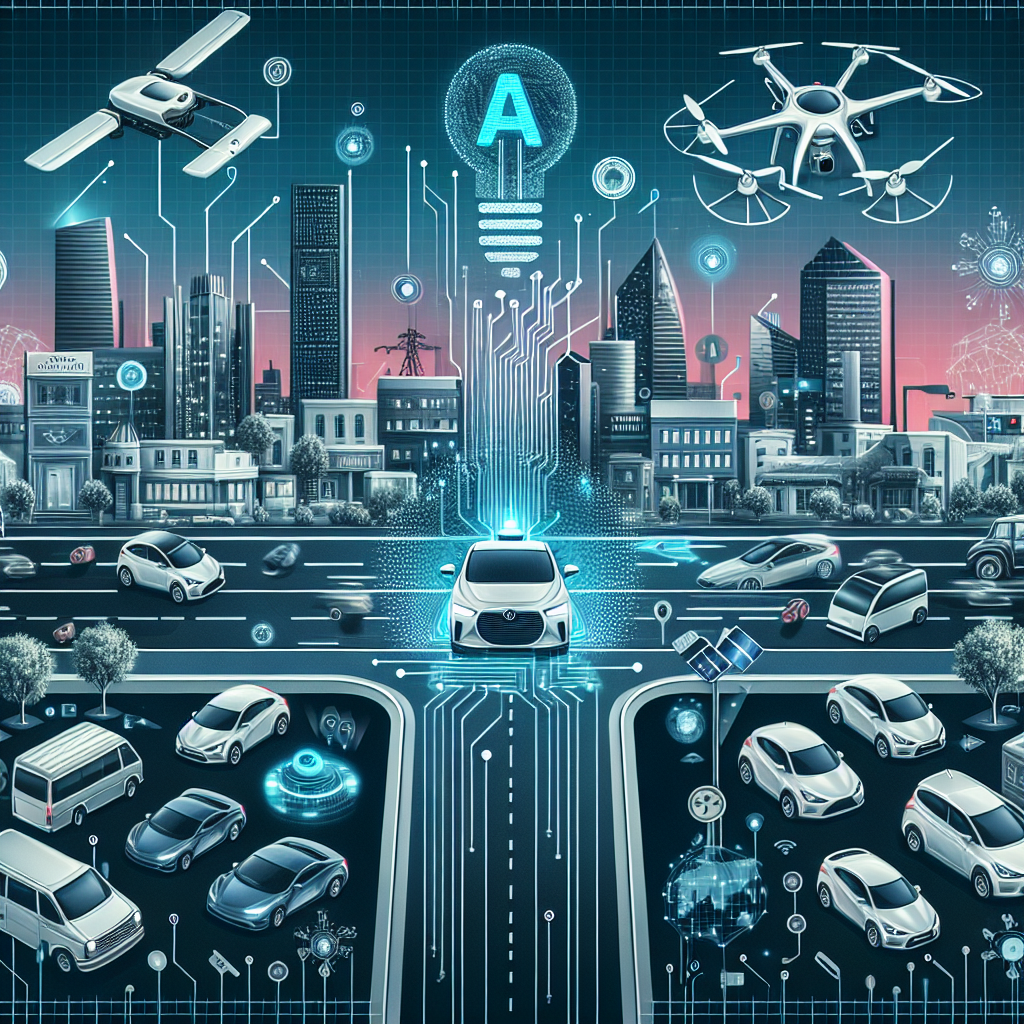In recent years, the transportation industry has seen significant advancements in safety and security technology. One of the most promising innovations in this field is the use of artificial intelligence (AI) technology. AI has the potential to revolutionize the way we approach safety and security in transportation, making it more efficient, effective, and reliable. In this article, we will explore how AI technology is enhancing safety and security in transportation and the benefits it brings to the industry.
AI technology in transportation
AI technology encompasses a wide range of tools and techniques that enable machines to perform tasks that typically require human intelligence, such as learning, reasoning, problem-solving, perception, and language understanding. In transportation, AI technology is being used to enhance safety and security in various ways.
One of the key applications of AI technology in transportation is in the development of autonomous vehicles. These vehicles are equipped with sensors, cameras, and other technologies that enable them to perceive their environment and make decisions based on that information. AI algorithms are used to analyze data from these sensors and make real-time decisions about how to navigate the vehicle safely. This technology has the potential to significantly reduce the number of accidents on the road by eliminating human error, which is a leading cause of traffic accidents.
AI technology is also being used to enhance security in transportation systems. For example, AI algorithms can analyze video feeds from surveillance cameras to detect suspicious behavior or objects in airports, train stations, and other transportation hubs. This enables security personnel to respond quickly to potential threats and prevent security incidents before they escalate.
Another application of AI technology in transportation is in predictive maintenance. By analyzing data from sensors on vehicles and infrastructure, AI algorithms can predict when components are likely to fail and schedule maintenance proactively. This can help prevent breakdowns and accidents, improving the safety and reliability of transportation systems.
Benefits of AI technology in transportation
There are several key benefits of using AI technology to enhance safety and security in transportation:
1. Improved safety: AI technology can help reduce accidents on the road by eliminating human error and making real-time decisions to avoid collisions. This can save lives and prevent injuries, making transportation systems safer for everyone.
2. Enhanced security: AI technology can help detect and respond to security threats more effectively, enabling security personnel to prevent incidents before they occur. This can help protect passengers, employees, and infrastructure from harm.
3. Cost savings: By predicting maintenance needs and scheduling repairs proactively, AI technology can help transportation companies reduce downtime and maintenance costs. This can improve the efficiency and reliability of transportation systems while saving money in the long run.
4. Increased efficiency: AI technology can help optimize traffic flow, reduce congestion, and improve the overall efficiency of transportation systems. This can lead to faster travel times, lower fuel consumption, and a better experience for passengers.
FAQs about AI technology in transportation
Q: How does AI technology improve safety in autonomous vehicles?
A: AI technology enables autonomous vehicles to perceive their environment, make real-time decisions, and navigate safely on the road. By analyzing data from sensors and cameras, AI algorithms can detect obstacles, pedestrians, and other vehicles, and respond appropriately to avoid collisions.
Q: Can AI technology prevent security threats in transportation systems?
A: Yes, AI technology can help detect and respond to security threats more effectively by analyzing video feeds from surveillance cameras, detecting suspicious behavior or objects, and alerting security personnel to potential threats. This enables security personnel to prevent incidents before they occur.
Q: How does AI technology predict maintenance needs in transportation systems?
A: AI algorithms analyze data from sensors on vehicles and infrastructure to predict when components are likely to fail. By monitoring the condition of equipment in real time, AI technology can schedule maintenance proactively, preventing breakdowns and accidents.
Q: What are the main challenges of implementing AI technology in transportation systems?
A: Some of the main challenges of implementing AI technology in transportation systems include ensuring the accuracy and reliability of AI algorithms, addressing privacy and security concerns related to data collection and analysis, and integrating AI technology with existing infrastructure and systems.
In conclusion, AI technology has the potential to revolutionize safety and security in transportation by improving the efficiency, effectiveness, and reliability of transportation systems. By leveraging AI algorithms to analyze data, make real-time decisions, and predict maintenance needs, transportation companies can enhance safety, reduce accidents, and protect passengers and infrastructure from harm. As the technology continues to evolve and mature, we can expect to see even greater advancements in safety and security in transportation in the years to come.

